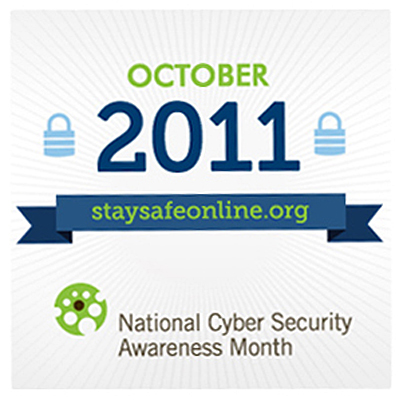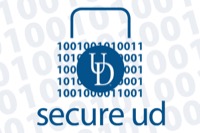
Cyber Security
UD observes National Cyber Security Awareness Month
9:58 a.m., Oct. 3, 2011--Since 2004, EDUCAUSE, the National Cyber Security Alliance (NCSA) and other national organizations have declared October to be National Cyber Security Awareness Month (NSCAM), and the University of Delaware has joined in the annual effort to promote cyber security to the campus community.
This year's theme for NSCAM, "Our Shared Responsibility," emphasizes that the actions each individual takes have a collective impact. When each person uses the Internet securely, it is more secure for everyone.
FYI Stories
June 6: UDid It! Picnic
2FA protects you
“During October, we'll remind you about some of the things you can do to protect your personal information as well others’ information entrusted to your care,” Beth Miller, UD IT Client Support and Services, said. "We all have a responsibility to secure our own part of cyberspace, including the networks and devices we use."
She added that the University has long publicized the need for protecting computers from viruses and malware. “But don’t overlook your smartphone. If you use a smartphone, you should have antivirus protection for it, or you run the risk of compromising your data's integrity or revealing personal information to unscrupulous individuals."
Currently, UD does not have a site license for an antivirus application for smartphones. "However, based on a number of evaluations, we have some recommendations," Miller said.
Android smartphones
The Android operating system is relatively open and can become infected when apps are downloaded. Google had to remove 50 apps that carried DroidDream, malware that passed sensitive data such as passwords to a remote server. Lookout Mobile Security Free is recommended for an Android smartphone. (Android is a trademark of Google Inc.).
BlackBerry smartphones
The BlackBerry smartphone has only had one virus to date -- the Zeus trojan that monitored a user's private information, especially mobile banking. The BlackBerry smartphones owned by UD are behind the BlackBerry Enterprise server, so they are not as vulnerable. Lookout Mobile Security Free is recommended for a BlackBerry smartphone.
iPhone mobile digital devices
So far, iPhone mobile digital devices have only been infected by a virus if they have been unlocked or "jail broken." The only virus detected so far has been the ikee worm, which only changed the phone's background. Trend Micro Smart Surfing Free is recommended for an iPhone.
NCSAM serves as an annual reminder about the steps everyone must take to keep the network secure. “All of us must create strong passwords, install antivirus software, keep our computer's software current, watch out for suspicious email and social networking activities, and back up our data,” Miller said.
For more information about cyber security, visit these websites:
• National Cyber Security Alliance
• State of Delaware's Cyber Security








